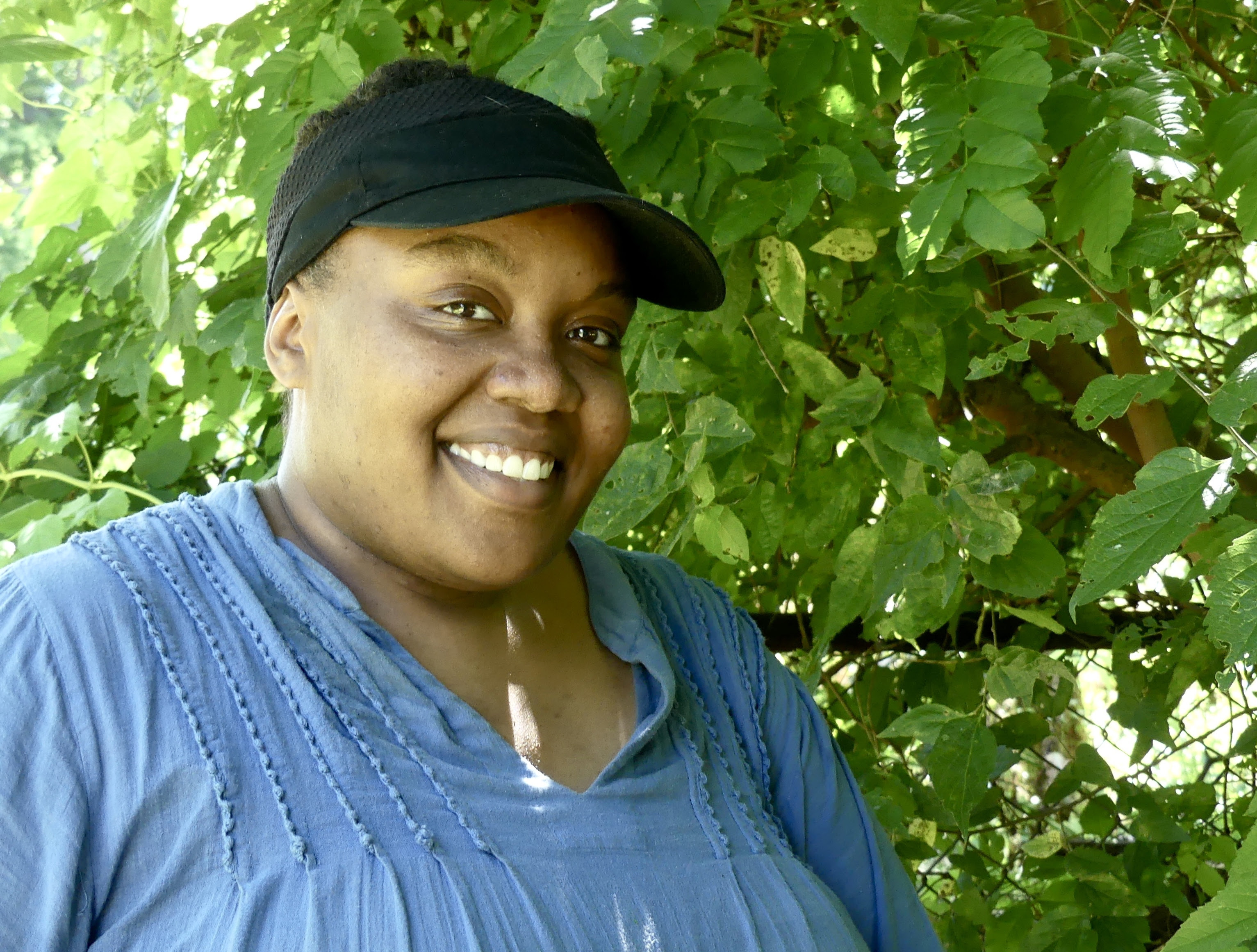Meet our Apprentices: Jennifer Prince 
When Jennifer Prince was a student at Sheridan Road Elementary School in Lawton, her teacher led the class in helping rebuild Elmer Thomas Lake in the Wichita Mountain Wildlife Refuge. Every year, they had a project in which the students participated: fixing a valve, mowing, restructuring a water feature… Their teacher got them involved in other activities, including searching for wildflowers locally, that raised their ecological consciousness.
Now Jennifer is a teacher herself — 10th grade English teacher at Douglas High School. There, she started a maker space for the students, with a studio for recording podcasts and videos, doing acrylic art and, among other features, growing an indoor garden. She’s creating a different kind of learning space, the kind that she experienced as a young girl. “I’ve seen so many Hot Cheetos at the high school,” she says. “The students today are so far removed from real food. They’ve never planted anything in their lives. That is so different from my school.” It’s a professional dream, to help her students learn about growing food, as well as a personal dream. “I have this really weird dream of moving back to the country some day, to the family land near Elmore City where my dad is from, and doing farming. My generation wanted to move to the country after our parents moved away.” Anticipating that day, after she retires from teaching, Jennifer Googled “learn how to farm” and discovered the apprentice program at CommonWealth. “I saw what CommonWealth is doing for the community and realized that’s up my alley; what I want to do.” She sees education changing: teaching using hands-on processes, teaching valuable skills—similar to her own early education, similar to the education she’s getting as an apprentice at CommonWealth. “I’ve learned more in six weeks than I could ever learn in a classroom,” Jennifer says. “I can see marrying our maker space with CommonWealth. There’s a whole other world of learning to explore. “I’d like students to be in a learning environment that puts them in a situation where they have to learn; maybe a summer curriculum where they learn long-lasting skills through agriculture.” Jennifer, who is working on her master’s degree in library science, has worked with her father to build raised beds to plant a fall garden this year. Too, her mom caught the growing food bug from Jennifer and started a garden this spring. As her apprenticeship comes to an end, we will miss Jennifer’s eager participation around the farm, as well has her quick smile. But, we are grateful for all she will continue to bring to her family, her students and community. |